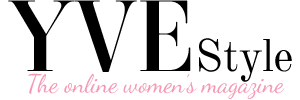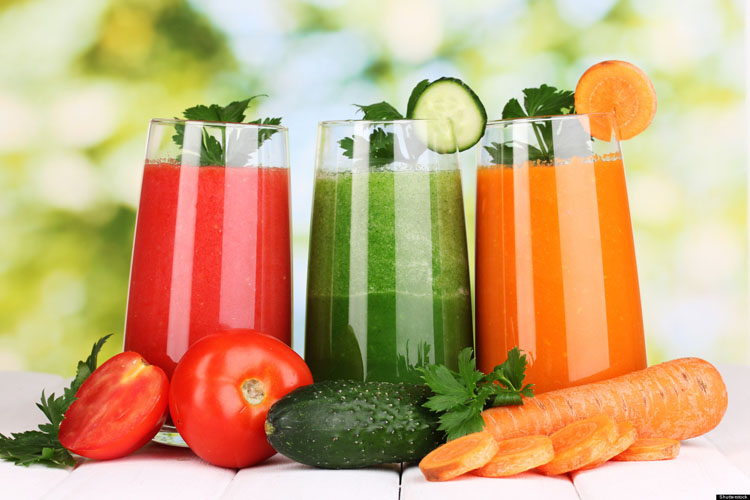Detox diet is one of the most popular regimes for cleansing the body of toxins and it follows a plan of fresh vegetables, fruits and anti-inflammatory foods with certain restrictions. There are various cleansing programs based upon similar guidelines, so choose the one that suits you best.
Detox diet is very healthy without getting extreme. First of all, for 3 days you need to prepare for the actual detox by decreasing and eliminating particular foods and drinks which might make harder the process of cleansing, such as dairy products, wheat, fast food, trans fats, boxed and canned food, packaged products, sugars, artificial sweeteners, alcohol, caffeine. If you want to go on a juice fast for 3 days, it is recommended to avoid poultry and meat too. You must eat a lot of raw fruits, salads, raw and lightly steamed vegetables. One more important step in detox diet is to drink at least 8 glasses of filtered water a day, to keep you hydrated and to flush the toxins.
Detox diet is not only about what you eat and what you drink. You must also take care of your skin by exfoliating it regularly with a dry brush, to stimulate its circulation and help eliminate the toxins. For a better detox diet process, you can use some essential oils for massage, because they calm your skin and enhance its beauty; plus, they are very relaxing and calm down the possible headaches you might feel after you give up on caffeine.
Allowed foods to eat in a detox diet
- Vegetables: cauliflower, cabbage, broccoli, broccoli sprouts, salad, kale, artichokes, onions, spring onions, collard greens, garlic, beets, Swiss chard, carrots, turnip, mushrooms, swede, sprouts, peppers, sweet corn, leeks, courgettes, tomatoes, cucumber, etc.; sea vegetables: nori sheets, wakame, kelp
- Beans and legumes: split yellow, green peas, adzuki beans, haricot, red kidney, cannellini, black eye, butter, pinto, red lentils, green lentils and brown lentils
- Grains and starches: whole grains products (brown rice pasta, rice crackers, whole braid, pure buckwheat noodles), oats, buckwheat, millet, rice, wild rice, amaranth, quinoa
- Raw, unsalted nuts and seeds: almonds, walnuts, cashews, sunflower seeds, sesame seeds, pumpkin seeds, Brazil nuts, peanuts, hazel nuts, macadamia, pecans, pine nuts, pistachios, walnuts, coconut (especially young coconuts), chia seeds, tahini, hemp seeds, hemp nuts, nut and butters made only with allowed ingredients, unflavoured popcorn, etc.
- Fruits: fresh or frozen fruits, unsweetened natural juice, unsweetened dried fruits in unlimited quantities: dates, goji berries, cranberries, apples, pears, oranges, nectarines, grapefruits, peaches, bananas, raisins, pineapple, kiwi fruit, mango, melons, strawberries, raspberries, blackcurrants, star fruit, etc
- Oils: cold-pressed, extra-virgin olive oil, flax oil, almond oil, avocado oil, coconut oil, hemp oil, chia oil, and in limited amounts (because they contain Omega–6 fat acids): sunflower oil, safflower oil, sesame oil
- Condiments: fresh and dried herbs and spices, sea salt, mustard, apple cider vinegar, balsamic vinegar, lemons and limes, black olives, carob powder, cacao powder and cacao nibs, Bragg’s Liquid Aminos, miso (small amounts), wheat-free tamari (in limited amounts), ginger, ground black pepper
- Sweeteners: brown rice syrup, stevia, raw honey, real maple syrup, black strap molasses, erythritol
- Beverages: water (minimum 2 l per day), lemon water, herbal teas, green teas, fruit teas, rice milk, hemp milk, almond milk, coconut milk (except canned coconut milk), unsweetened smoothies from fresh fruit, unsweetened juice made from allowed fruits and vegetables and in limited amounts: mineral or seltzer water
- Animal Protein – some detox diets may include animal protein: organic (chicken, preferably pastured), organic turkey, lamb, venison, buffalo, ostrich, fresh fish (salmon; cod, plaice, crab, mackerel, lobster, trout, haddock, tuna, prawns, Dover sole, lemon sole, red mullet, halibut, monkfish, swordfish, etc.)
Forbidden foods in a detox diet
- Animal products: red meat, beef, veal, pork, deli meats and cold cuts, sausages and hot dogs, shellfish, any meat products (sausages, and pate, burgers); some detox diets ban the poultry too: chicken, turkey
- Dairy products: milk, sour cream, yogurt, frozen yogurt, kefir, cheese, cottage cheese, butter, ice cream, eggs
- Gluten: grains like barley, couscous, kamut, rye, spelt, bran, farina, wheat
- Some vegetables: corn (it creates acid)
- Some nuts and seeds: peanuts and peanut butter, crisps and savoury snacks including salted nuts
- Regular wheat and wheat products: white pasta, white bread, bread, bread crumbed foods, croissants, cereals, cakes, biscuits, pies, pastry, quiche, battered or, etc.
- Soy: soy milk, soy yogurt, tofu, soy sauce, soy protein powder, tempeh
- Sweeteners: refined sugar, white sugars, brown sugars, high-fructose corn syrup, evaporated cane juices, artificial sweeteners, chocolate, sweets, jam
- Some condiments: salt, ketchup, teriyaki sauce, non-dairy creamers, relish, barbeque or steak sauce, mayonnaise, sauces, pickles, shop bought salad dressing, salad dressings not made with allowed ingredients, spreads not made with the allowed ingredients, similar condiments
- Some drinks: alcohol, caffeinated beverages (coffee, some teas, some soft drinks), fizzy drinks and squashes, including diet versions
- Other foods you should not eat: high-fat foods, yeast, food additives and preservatives, shortening, canned coconut milk, butter, margarine, processed foods, ready meals, ready-made sauces and takeaways
Note: Some people might have a sensibility in eating certain vegetables and it is recommended to avoid them and to eat only the ones which do not represent danger in any way. Keep in mind that you must talk to your doctor before following a detox diet, especially if you are under a treatment or you take some medicines.

